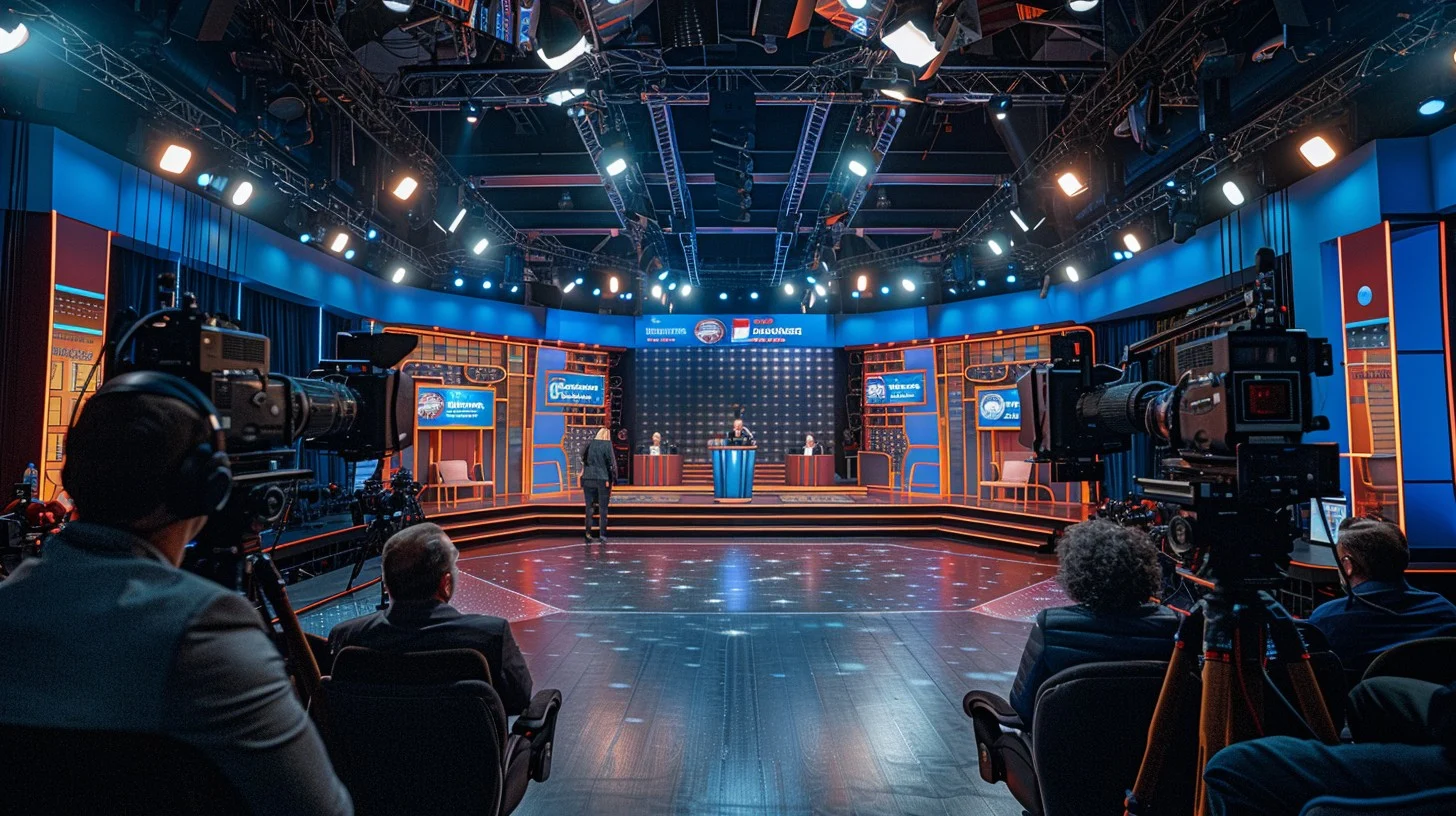The lights are dim, the crowd is cheering and clapping, the spotlight on a makeshift living room grows brighter, and soon enough a dazzling figure steps up on the stage in a sharp suit and a wide smile. The fun and exciting theme music ques in and the late night show hosts start their monologue.
We all watch these hosts with light hearted moods, whether it be Jimmy Fallon, Jimmy Kimmel, or Stephen Colbert. They add a touch of vibrancy in our everyday lives with their witty remarks about current events and ridiculous trends. Their shows are meant to entertain, yet if you read between the lines, they serve as something much more significant to our society: satire.
Satire is a big part of our society, with “robust satire…often [being] a sign of crisis and the ability to share and consume it… a sign of a free society,” according to Futurity. Satire, first believed to have originated in Ancient Greek times, allowed for the perpetual fame of many figures. It held a lot of power, and in “Medieval Celtic society…satire was…so powerful it could kill – or at least bring forth festering pustules,” as stated by Stockroom.
However, since the times of Ancient Greece, satire has evolved into a form of stand-up comedy where hosts make jokes on current politicians in a merry manner.
“That’s not just a hat, it’s Melana’s very own border wall,” Fallon joked on his Tonight Show regarding Melania Trump’s viral hat at the 2025 Presidential Inauguration.
From a first glance, this might seem like a harmless comment poking fun at the new President, yet when looking twice, it is a clear jab at Donald Trump’s relationship with his wife and also an allusion to Trump’s border policies. Oregon State’s College of Liberal Arts defines satire as “the art of making someone look ridiculous, raising laughter in order to embarrass, humble, or discredit its targets.” Fallon certainly seems to be carrying this out in a professional manner.
Kimmel has also repeatedly used satire to critique political figures and institutions, particularly the Trump administration. One of his most famous moments came when he addressed the Affordable Care Act, using his personal experience with his son’s medical condition to highlight healthcare inequalities.
“If your baby is going to die, and it doesn’t have to, it shouldn’t matter how much money you make,” he said.
His emotional yet satirical critique of lawmakers who opposed healthcare reform resonated with millions and put pressure on politicians to reconsider their stance.
Colbert, known for his sharp wit and fearless approach, has also taken on various politicians, including his infamous roast of George W. Bush at the 2006 White House Correspondents’ Dinner. More recently, he mocked Ted Cruz’s attempt to escape to Cancun during the Texas winter storm crisis, calling it “a long, hard-fought vacation” while highlighting the suffering of millions of Texans. His blend of humor and criticism keeps politicians under public scrutiny.
However, satire’s role in society is not without controversy.
“The toxic disinformation of social media has rendered traditional forms of humor quaint and futile,” Justin E.H. Smith, philosophy professor and author, wrote in The New York Times. Additionally, some argue that it reduces complex issues into oversimplified jokes, while others believe it plays a crucial role in holding those in power accountable. With the rise of social media, satire has become even more influential, with political memes spreading rapidly on apps like TikTok, Instagram, and more.
Ultimately, late-night hosts play a vital role in the modern satirical world, using humor to shine a light on political flaws and societal issues. Their witty jabs may seem playful at first, but they are often deeply reflective of the challenges our world faces, challenging the status quo and encouraging audiences to think critically. Whether through poking fun at politicians or exposing societal injustices, these hosts have become the voice of satire in a rapidly changing world. In doing so, they uphold the age-old tradition of satire, proving that it remains a powerful tool for social commentary and change.









